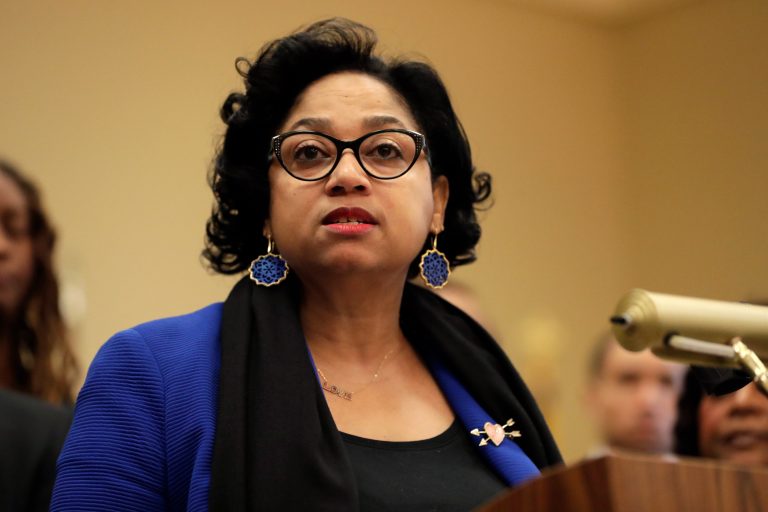Voters in 10 states will consider whether or not to protect or expand abortion rights in November. That includes battleground states such as Arizona and Nevada and such Republican strongholds as South Dakota and Missouri.
In Maryland, where abortion is legal, a proposed amendment is much broader than many abortion-related ballot questions in other states. Called the Right to Reproductive Freedom amendment, it would enshrine in the state constitution a right “to make and effectuate decisions to prevent, continue, or end one’s own pregnancy.”
“What we’re saying with this amendment is that the right to reproductive freedom is central to an individual’s liberty and equality,” said Joseline Peña-Melnyk, a Democrat who chairs the Health and Government Operations Committee in the Maryland House of Delegates. She helped draft the amendment.
Reproductive freedom, Peña-Melnyk said, includes birth control, fertility treatment, tubal ligation, abortion care, and vasectomies. “It’s not just for women; it’s for everyone,” she said.
Maryland already has some of the strongest protections for reproductive health care in the country. In 1998, it became the first state to mandate that insurance companies cover birth control, more than a decade before the Affordable Care Act did so nationwide. And, in 2016, it became one of the first states to require insurance companies and Medicaid to pay for the entire cost of male sterilization procedures and over-the-counter emergency contraception.
The state’s agencies are prohibited from providing information to other states for investigations of “legally protected health care,” including reproductive health care services, provided by Maryland-based physicians.
Democratic lawmakers, who control the state legislature and now hold the governor’s mansion, have methodically passed laws to bolster reproductive health rights. Enshrining those rights in the state constitution will protect Marylanders regardless of which party is in power, Peña-Melnyk said.
“The measure guarantees that future changes — for example, in state politics — will not easily overturn these rights,” she said.
Putting an abortion rights amendment on the state ballot could also boost turnout for the Nov. 5 election — a potential lift for Democratic U.S. Senate candidate Angela Alsobrooks, who is in a competitive race against former Gov. Larry Hogan, a Republican.
Jeffrey Trimbath, president of the Maryland Family Institute, an anti-abortion group that describes its work, in part, as protecting life and parental rights, said the amendment is unnecessary because there is no serious discussion of rolling back abortion rights in the state capital.
The measure “uses this undefined term ‘reproductive freedom’ and it says ‘including but not limited to,’” Trimbath said. And, he said, the reproductive freedom amendment would undermine parents’ rights.
“The first two words, ‘Every person’ — there is no constraint on who that is. Every single person, whether you’re 6 months old, 6 years old, 16 years old, or 100 years old,” Trimbath said. “Every person is entitled to this right. We think that includes children.”
Maryland law does require that one parent or guardian be notified before a person under 18 can receive abortion care, although the law provides several exceptions, including if a doctor determines that the notification could harm the patient. State lawmakers who drafted the amendment and legal experts say it will not alter existing abortion laws in Maryland, including requirements for minors.
#Marylanders #Vote #Expansive #Reproductive #Freedom
Marylanders To Vote on Expansive ‘Right to Reproductive Freedom’
